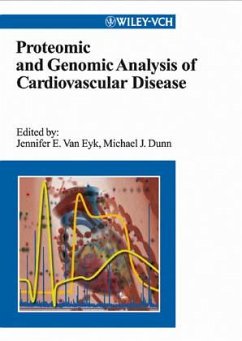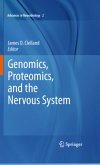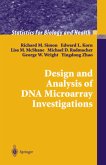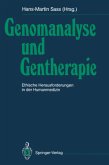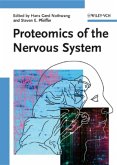This is the very first book to focus on this new approach, which will eventually aid in developing new diagnostic markers and therapies for controlling and treating heart disease. Divided into two parts, the book describes not only the potentials, but also the limitations of these technologies, greatly assisting the growing number of researchers intending to utilize these approaches.
Herz-Kreislauferkrankungen sind die Zivilisationskrankheit Nummer 1. Dies ist weltweit das erste Buch, das sich mit der Analyse des Proteoms und Genoms von betroffenen Patienten beschäftigt. Diese neuen Forschungsansätze haben bereits erste erstaunliche Ergebnisse erzielt. Man erwartet neue Einblicke in die biochemischen und zellulären Grundlagen der Krankheitsentstehung und außerdem interessante Hinweise auf die Entwicklung von neuen Diagnostica und Therapeutica. Gegliedert in zwei Teile werden die Möglichkeiten, aber auch die Grenzen dieser neuen Analysetechniken aufgezeigt. Es werden verschiedene Arbeitsstrategien und die entsprechenden methodischen Arbeitsschritte vorgestellt. Klinische Anwendungsmöglichkeiten werden dabei ebenfalls berücksichtigt. Das Werk richtet sich an Molekularbiologen, Biochemiker und Chemiker in der Grundlagenforschung und der chemisch-pharmazeutischen Industrie, insbesondere in der Arzneimittelforschung.
Herz-Kreislauferkrankungen sind die Zivilisationskrankheit Nummer 1. Dies ist weltweit das erste Buch, das sich mit der Analyse des Proteoms und Genoms von betroffenen Patienten beschäftigt. Diese neuen Forschungsansätze haben bereits erste erstaunliche Ergebnisse erzielt. Man erwartet neue Einblicke in die biochemischen und zellulären Grundlagen der Krankheitsentstehung und außerdem interessante Hinweise auf die Entwicklung von neuen Diagnostica und Therapeutica. Gegliedert in zwei Teile werden die Möglichkeiten, aber auch die Grenzen dieser neuen Analysetechniken aufgezeigt. Es werden verschiedene Arbeitsstrategien und die entsprechenden methodischen Arbeitsschritte vorgestellt. Klinische Anwendungsmöglichkeiten werden dabei ebenfalls berücksichtigt. Das Werk richtet sich an Molekularbiologen, Biochemiker und Chemiker in der Grundlagenforschung und der chemisch-pharmazeutischen Industrie, insbesondere in der Arzneimittelforschung.
"...this is a highly recommended book..." Human Genomics
"...provides a timely integration of the emerging technologies of genomics, proteomics and drug discovery...suitable for all levels..." Briefings in Functional Genomics and Proteomics, Vol 2(4), Feb 2004
"This is a very good book, whose best virtue is that it reliably reflects the current status of genomics and proteomics in the cardiovascular area. The inclusion of both fields in the same book could be considered excessively ambitious, but the result is very positive....
Overall, this is a highly recommended book, written by specialists in their fields, offering a clear and concise overview of the basis for, and latest developments in, cardiovascular genomics and proteomics." Fernando Vivanco, Fundación Jímenez Díaz, Madrid, Spain, Human Genomics 1/04
"In summary, this book provides a strong foundation in genomic and proteomic methodology and will bring the reader to the forefront in the use of these tools in cardiovascular disease research." Alan T. Remaley, Clinical Chemistry
"...provides a timely integration of the emerging technologies of genomics, proteomics and drug discovery...suitable for all levels..." Briefings in Functional Genomics and Proteomics, Vol 2(4), Feb 2004
"This is a very good book, whose best virtue is that it reliably reflects the current status of genomics and proteomics in the cardiovascular area. The inclusion of both fields in the same book could be considered excessively ambitious, but the result is very positive....
Overall, this is a highly recommended book, written by specialists in their fields, offering a clear and concise overview of the basis for, and latest developments in, cardiovascular genomics and proteomics." Fernando Vivanco, Fundación Jímenez Díaz, Madrid, Spain, Human Genomics 1/04
"In summary, this book provides a strong foundation in genomic and proteomic methodology and will bring the reader to the forefront in the use of these tools in cardiovascular disease research." Alan T. Remaley, Clinical Chemistry

